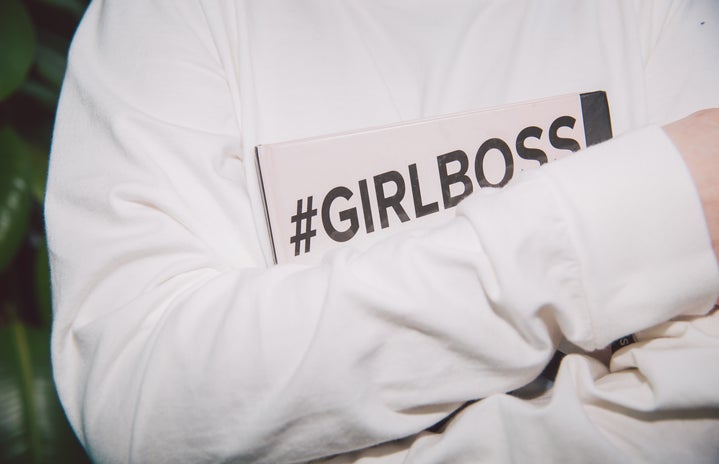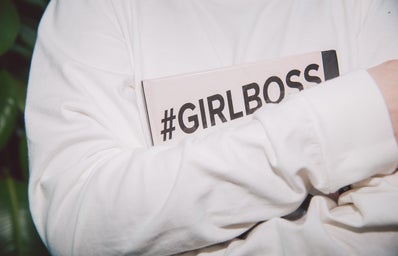Born in the 2010s, the girlboss was the ultimate millennial feminist fantasy. She was a career woman with an immaculate wardrobe. She was tall and pretty. She worked out and took care of herself. She successfully balanced her personal and professional life. Her hard work always paid off. She was the perfect symbol of the rise and grind era. Women were finally climbing the rungs of the cooperate ladder. A woman’s personal quest to fulfil her ambition was seen as a radical act toward equality. As Alex Abad-Santos wrote in her piece for Vox, “As a female business leader — be she a CEO, an aspiring CEO, or an independent MLM superseller — the girlboss was going to unapologetically will empires from the rubble of rejection and underestimation she faced all her life. As companies grew in her image, so did her mythos; her legacy would be grand and fair, because equality was coming to work. Everyone was supposed to win when girlbosses won.”
The term ‘girlboss’ became part of the cultural zeitgeist after Sophia Amoruso, founder of Nasty Gal-a women’s fashion retailer, published her book #Girlboss, which was a part memoir, part guide “to project yourself into an awesome life where you can do whatever you want”. According to Amoruso, a girlboss is someone who isn’t afraid to work hard and “gets what she wants because she works for it”. It pinned feminism to hustling, making problems of inequality personal instead of political. So, instead of challenging the structure that hinders women, she was supposed to work on herself, be more assertive, confident and “lean in” and work harder and “get shit done”.
The Girlboss became popular because people wanted her to. If a woman could become successful by embracing feminism and inclusivity as her personal brand, all we had to do was be savvy consumers and buy our way to equality. And buying a vintage T-Shirt is a lot easier than going to a protest. But a girlboss wasn’t about changing the old structure. Instead, she learnt to navigate it and work within it. Rhiannon Lucy Cosslet wrote, in her piece about the death of the girlboss for the Guardian, “you work on changing yourself within the existing capitalist, corporate reality, rather than trying to transform that reality.”
In 2015, a lawsuit was filed against Nasty Gal, after it fired women because of pregnancy. In 2016, it filed for bankruptcy. As the subsequent number of reports came to light about companies that were touted to be inclusive but fostered a toxic workplace behind the scenes, the tone of the discussion around the girlboss shifted. She was no longer the symbol of female empowerment but just another capitalistic trick. On January 12, 2021, appeared a post on Tumblr that read: “Today’s agenda: gaslight gatekeep and most importantly girlboss”. The post was shared more than 44,000 times. ‘Gaslight, Gatekeep, Girlboss’ exploded on the Internet, with TikToks, image macros and tweets dedicated to it, as a sort of toxic ‘live, love, laugh’, poking fun at the toxic aspect of girlbossing which includes, well, gaslighting and gatekeeping.
And thus, came the demise of the Girlboss.
Part of the reason why girlboss was successful, and also eventually failed, was because of sexism. The idea that women are inherently virtuous and nurturing helped these companies successfully integrate feminism into their brands. These women weren’t supposed to succumb to greed and power like their male counterparts. But this set up a trap in which a woman couldn’t be too assertive but her gentleness was also seen as a weakness. When these companies are not able to uphold the standards and values they promised, it is not just seen as a failure of business but also a betrayal of their gender.
Doing away with girlboss-ery isn’t about giving up on promoting gender parity in the workplace but a realisation that just putting relatively privileged, middle-class, college-educated women in positions of power, previously occupied by men, doesn’t necessarily promise a change in the way things are carried out in the workplace.
The cultural reckoning and the changes in how we view work as a part of our life in the post-Pandemic world have led to a shift in focus from personal achievement to collective upliftment, leaving little space for the girlboss but expanding it to imagine a better world than the one she promised.

